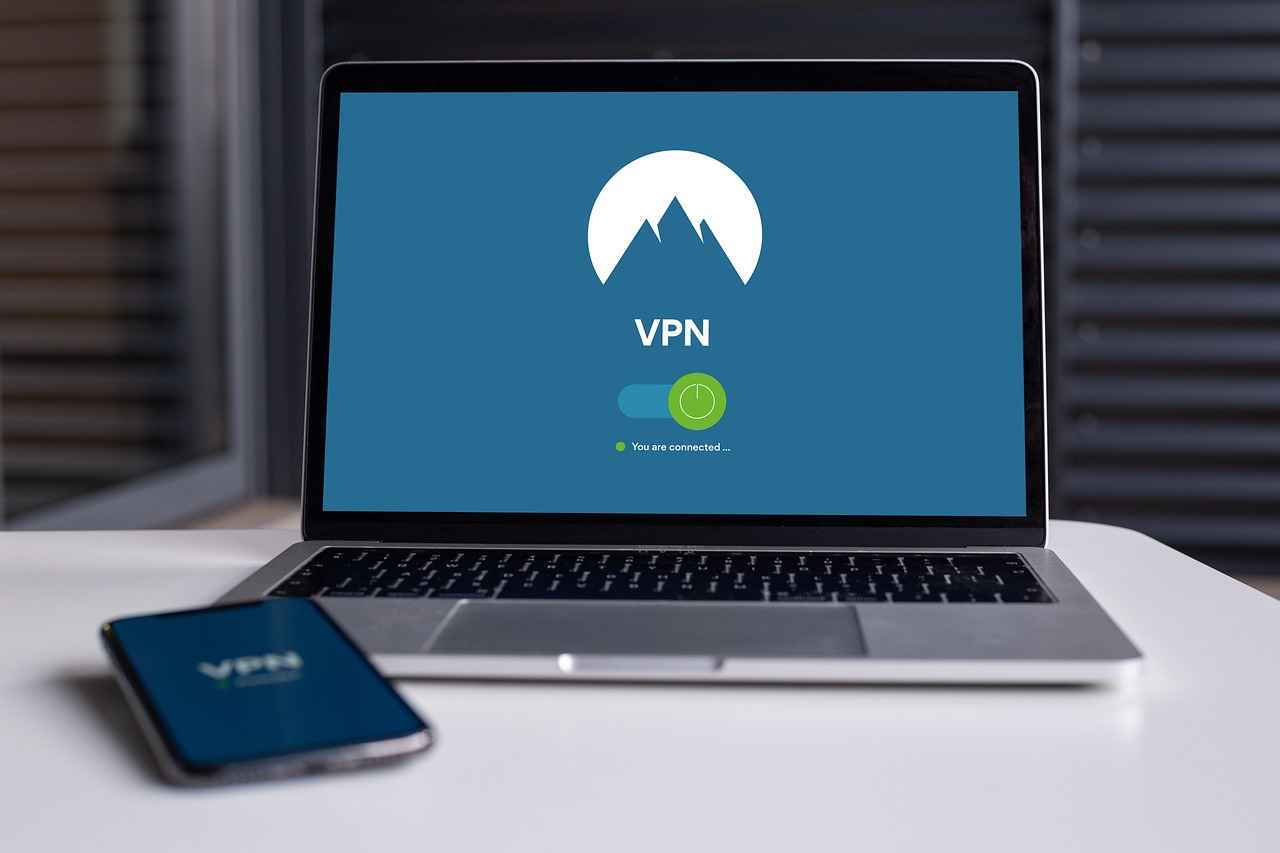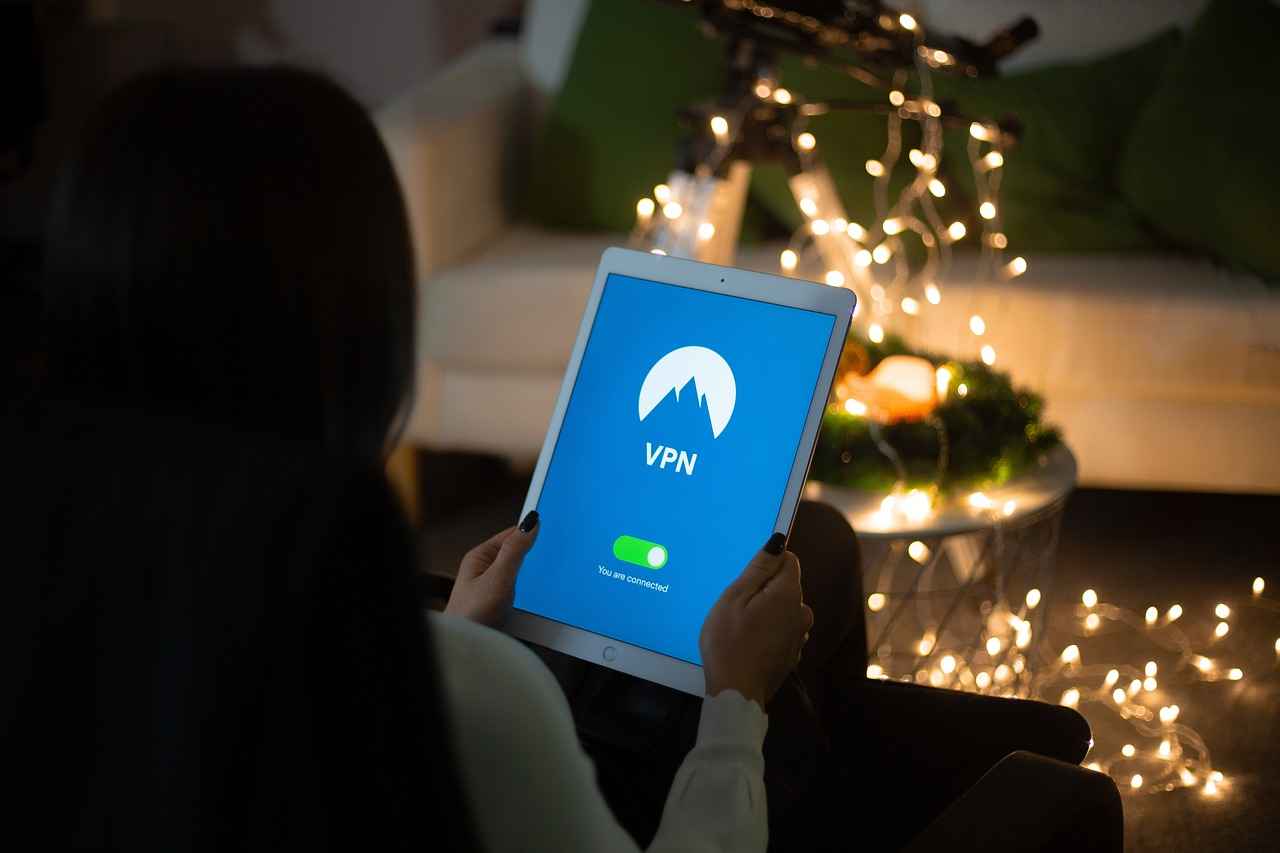This article delves into the myriad ways a Virtual Private Network (VPN) can significantly enhance your streaming experience for live sports, especially when faced with regional blackouts. With the rise of online streaming services, sports enthusiasts often find themselves frustrated by content restrictions based on geographical locations. A VPN can be a game-changer in this scenario.
What is a VPN and How Does it Work?
A VPN, or Virtual Private Network, is a technology that creates a secure tunnel between your device and the internet. By encrypting your data and masking your IP address, a VPN allows you to browse the web anonymously. This means that when you connect to a VPN server, your online activities are hidden from your Internet Service Provider (ISP) and other third parties. This feature is particularly beneficial for streaming live sports, as it enables access to content that may be restricted in your region.
Why Use a VPN for Streaming Live Sports?
Using a VPN for streaming live sports offers numerous advantages. Firstly, it allows you to bypass geo-restrictions, giving you access to games that might not be available in your country. Secondly, a VPN enhances your privacy by encrypting your connection, ensuring that your viewing habits remain confidential. Lastly, it can also provide a more stable connection by reducing buffering and lag, which are common issues during live broadcasts.
Choosing the Right VPN for Sports Streaming
Selecting the right VPN is crucial for an optimal streaming experience. Here are some factors to consider:
- Speed: Look for a VPN that offers high-speed connections to avoid buffering during live games.
- Server Locations: Choose a VPN with servers in multiple countries to access a variety of content.
- Device Compatibility: Ensure the VPN works on all your devices, including smartphones, tablets, and smart TVs.
- Bypass Capability: The VPN should have a proven track record of bypassing geo-restrictions on popular streaming platforms.
How to Set Up a VPN for Streaming
Setting up a VPN for streaming is a straightforward process:
1. Choose a reliable VPN provider.2. Download and install the VPN application on your device.3. Open the application and log in with your credentials.4. Select a server location where the sports event is available.5. Connect to the server and start streaming your favorite games.
How to Bypass Blackouts with a VPN
Bypassing blackouts is one of the primary reasons sports fans turn to VPNs. When a game is blacked out in your area, you can connect to a server located in a different region where the game is available. This simple step allows you to watch without interruptions. Just remember to choose a server close to the broadcast location for the best performance.
Best VPNs for Streaming Live Sports in 2023
As of 2023, several VPNs have emerged as top performers for streaming live sports:
- ExpressVPN: Known for its fast speeds and extensive server network.
- NordVPN: Offers strong security features and excellent bypassing capabilities.
- Surfshark: A budget-friendly option with unlimited device connections.
Common Issues When Using a VPN for Streaming
While using a VPN can enhance your streaming experience, you may encounter some common issues:
- Slow Speeds: If your VPN connection is slow, try switching servers or optimizing your settings.
- Connection Drops: Ensure your internet connection is stable and consider using a wired connection for better reliability.
- Platform Restrictions: Some streaming services actively block VPN traffic. In such cases, try different servers or contact your VPN’s customer support.
Legal Considerations of Using a VPN for Streaming
While using a VPN is legal in many countries, it is vital to understand the terms of service of the streaming platforms you use. Some services may prohibit VPN usage, which could lead to account suspension. Always stay informed about the legal implications of bypassing geo-restrictions in your region.
Tips for Optimizing Your VPN for Streaming
To maximize your streaming experience with a VPN, consider the following tips:
- Choose the Right Server: Select a server that is geographically close to your desired content for optimal speed.
- Adjust VPN Settings: Experiment with different protocols and settings to find what works best for your connection.
- Maintain a Stable Internet Connection: Use a wired connection when possible to avoid interruptions.
Alternatives to Using a VPN for Live Sports Streaming
If a VPN does not suit your needs, there are alternative methods to watch live sports. Consider subscribing to dedicated streaming services that offer the sports content you desire, or explore sports packages from your cable provider. These options can provide reliable access without the need for a VPN.

What is a VPN and How Does it Work?
A VPN, or Virtual Private Network, is a technology that enables users to create a secure and encrypted connection over a less secure network, such as the Internet. This technology is especially useful in today’s digital age, where data privacy and security are paramount. By establishing a VPN connection, your online activities are shielded from prying eyes, including hackers, government agencies, and even your Internet Service Provider (ISP).
When you connect to a VPN, your device communicates with a remote server operated by the VPN provider. This server acts as an intermediary between your device and the websites you visit. Here’s how it works:
- Encryption: A VPN encrypts your internet traffic, turning your data into unreadable code. This means that even if someone intercepts your data, they won’t be able to decipher it.
- IP Address Masking: Your real IP address is replaced with the IP address of the VPN server. This helps in masking your location and identity, providing a layer of anonymity while browsing.
- Secure Tunneling: Data is sent through a secure tunnel between your device and the VPN server. This tunnel prevents unauthorized access to your data, ensuring a secure connection.
Additionally, VPNs can help you access content that may be restricted in your region. For instance, if a particular streaming service is only available in certain countries, connecting to a VPN server located in one of those countries can allow you to bypass these geographical restrictions.
There are various types of VPN protocols, each with its own advantages and disadvantages. Common protocols include:
| Protocol | Description | Security Level |
|---|---|---|
| PPTP | Fast but less secure. | Low |
| L2TP/IPsec | More secure than PPTP, but slower. | Medium |
| OpenVPN | Highly secure and configurable. | High |
| IKEv2/IPsec | Fast and secure, ideal for mobile devices. | High |
In summary, a VPN is a powerful tool that not only enhances your online security and privacy but also expands your access to digital content. As cyber threats continue to evolve, utilizing a VPN has become increasingly important for anyone looking to maintain their online safety and freedom.

Why Use a VPN for Streaming Live Sports?
In today’s digital age, sports fans are increasingly turning to online platforms to watch their favorite games live. However, many of these platforms impose geo-restrictions that can limit access based on your location. This is where a Virtual Private Network (VPN) comes into play. By masking your IP address and encrypting your internet connection, a VPN allows you to bypass these restrictions and enjoy uninterrupted access to live sports streaming.
One of the primary reasons to use a VPN for streaming live sports is to access geo-restricted content. Different countries have exclusive broadcasting rights to various sports events, meaning that fans may miss out on crucial matches simply because of their geographical location. A VPN allows you to connect to a server in a different country, effectively tricking the streaming service into thinking you are located there. This way, you can watch games that are otherwise unavailable in your region.
When streaming live sports, privacy is a significant concern. Many streaming services collect user data, which can be used for targeted advertising or even sold to third parties. By using a VPN, you can encrypt your internet connection, making it much harder for anyone to track your online activities. This added layer of security is particularly important when using public Wi-Fi networks, where your data can be vulnerable to hackers.
Another advantage of using a VPN for streaming live sports is the potential to enhance your streaming quality. Some ISPs may intentionally throttle your internet speed when they detect high-bandwidth activities like streaming. A VPN can help circumvent this throttling by masking your online activities, allowing you to enjoy smoother streaming without interruptions or buffering.
Regional blackouts can be frustrating for sports fans eager to catch a game. These blackouts occur when local broadcasters hold exclusive rights to specific games, preventing streaming services from airing them in certain areas. By connecting to a VPN server in a different region, you can effectively bypass these blackouts, giving you access to the games you want to watch.
Many sports streaming services require a subscription fee, which can add up over time. However, using a VPN can help you find cheaper alternatives available in other countries. By connecting to a server in a country where sports subscriptions are less expensive, you can enjoy significant savings while still accessing the content you love.
Using a VPN for streaming live sports not only enhances your viewing experience but also provides essential privacy and security benefits. With the ability to access geo-restricted content, bypass blackouts, and improve streaming quality, a VPN is a valuable tool for any sports fan looking to make the most of their online viewing experience.

Choosing the Right VPN for Sports Streaming
Choosing the right VPN for sports streaming is a critical step that can greatly enhance your viewing experience. With a multitude of options available, it is essential to focus on key factors that will ensure optimal performance and access to your favorite sports content.
Speed Matters: Why It’s Essential for Streaming
When selecting a VPN, speed is one of the most crucial aspects to consider. Streaming live sports requires a stable and fast internet connection to avoid buffering and interruptions. Look for VPNs that offer high-speed connections and unlimited bandwidth. Many reputable VPN providers offer speed tests, allowing you to evaluate their performance before making a decision.
Server Locations: Access to Your Favorite Sports
The availability of server locations is another vital factor. A good VPN should have a wide range of servers in different countries, particularly in regions where your desired sports events are broadcasted. This ensures that you can easily connect to a server that allows you to bypass geo-restrictions and access content that may not be available in your location. For instance, if you want to watch a game that is only available in the UK, choosing a VPN with servers in the UK will be beneficial.
Device Compatibility: Watch Anywhere
Compatibility with various devices is essential for a seamless streaming experience. Ensure that the VPN you choose is compatible with the devices you use, such as smartphones, tablets, smart TVs, and gaming consoles. Many VPNs offer dedicated apps for multiple platforms, making it easier to connect and stream your favorite sports content wherever you are.
Bypassing Geo-Restrictions: Accessing Global Content
A primary function of a VPN is its ability to bypass geo-restrictions. Not all VPNs are equally effective at this, so it’s crucial to select one known for its ability to unblock popular streaming services like ESPN, DAZN, or NBC Sports. Look for user reviews and expert recommendations to find a VPN that consistently allows access to these platforms.
Security Features: Protecting Your Privacy
While the primary goal is to enhance streaming capabilities, security should not be overlooked. Opt for a VPN that offers robust security features, such as strong encryption protocols, a no-logs policy, and a kill switch. These features will protect your data while you stream, ensuring that your online activity remains private and secure.
Customer Support: Assistance When You Need It
Reliable customer support can make a significant difference, especially if you encounter issues while streaming. Look for VPN providers that offer 24/7 customer support through various channels, such as live chat, email, or phone. This ensures that you can get help quickly if you experience any difficulties or have questions about setting up your VPN for sports streaming.
Conclusion: Making an Informed Choice
In summary, choosing the right VPN for sports streaming involves evaluating speed, server locations, device compatibility, geo-restriction bypassing capabilities, security features, and customer support. By considering these factors, you can select a VPN that not only enhances your streaming experience but also protects your privacy while you enjoy live sports from around the world.

How to Set Up a VPN for Streaming
Setting up a VPN for streaming is not only straightforward but also essential for enhancing your online viewing experience. By following a few simple steps, you can enjoy your favorite shows and sports events without any geographical restrictions. Here’s a detailed guide to help you through the process.
- Choose a Reliable VPN Provider: Start by researching and selecting a VPN provider that specializes in streaming. Look for services that offer fast speeds, multiple server locations, and a good track record for bypassing geo-restrictions. Popular options include ExpressVPN, NordVPN, and Surfshark.
- Download and Install the VPN Software: Once you’ve selected a provider, visit their website to download the VPN application. Installation is typically straightforward—just follow the on-screen instructions. The software is usually available for various platforms, including Windows, macOS, Android, and iOS.
- Create an Account: After installation, you will need to create an account. This usually involves providing an email address and selecting a payment plan. Most reputable VPNs offer a money-back guarantee, allowing you to test the service risk-free.
- Log In and Configure Settings: Open the VPN application and log in using your account credentials. It’s advisable to configure the settings for optimal performance. For streaming, enable features like split tunneling if available, which allows you to choose which apps use the VPN and which do not.
- Select a Server Location: Choose a server in a country where the content you want to access is available. For example, if you want to watch a sports event that’s only available in the UK, connect to a UK server. This will mask your IP address and make it appear as though you’re browsing from that location.
- Test Your Connection: Before you start streaming, it’s crucial to test your connection speed. Many VPNs have built-in speed tests. A stable and fast connection is essential for uninterrupted streaming. If the speed is slow, try connecting to a different server.
- Start Streaming: With everything set up, you can now visit your preferred streaming platform. Log in or sign up, and enjoy watching your favorite shows or live sports without any blackout restrictions.
Additional Tips:
- Always keep your VPN software updated for the best performance and security.- If you encounter buffering or slow speeds, switch to a different server or contact customer support for help.- Be aware of the legal implications of using a VPN in your region, especially regarding streaming services.
By following these steps, you’ll be well on your way to setting up a VPN for streaming. Not only will you gain access to a wider range of content, but you’ll also enhance your online privacy and security. Enjoy your streaming experience without limits!

How to Bypass Blackouts with a VPN
In the world of live sports streaming, blackouts can be a frustrating barrier for fans eager to catch every game. These blackouts typically occur due to broadcasting rights and regional restrictions, leaving many viewers unable to access their favorite teams. However, a Virtual Private Network (VPN) can be a powerful tool to help you bypass these limitations and enjoy uninterrupted viewing. Here’s how it works:
When you connect to a VPN, your internet connection is routed through a server located in a different geographic location. This process effectively masks your original IP address, making it appear as though you are accessing the internet from the server’s location. By selecting a server in a region where the game is available, you can easily bypass blackouts and watch the event as if you were there.
- Step 1: Choose a Reliable VPN Provider – Not all VPNs are created equal. Look for a provider known for its speed and reliability, especially for streaming purposes. Popular options include ExpressVPN, NordVPN, and Surfshark.
- Step 2: Install the VPN Software – Once you’ve chosen a provider, download and install their application on your device. Most reputable VPNs support various devices, including smartphones, tablets, and smart TVs.
- Step 3: Connect to a Server – Open the VPN application and connect to a server located in a region where the game you want to watch is available. For example, if a game is blacked out in your area but available in another state or country, select a server from that location.
- Step 4: Access the Streaming Service – With your VPN connected, navigate to the streaming service that broadcasts the game. You should now have access to the content without any blackout restrictions.
It’s important to note that while using a VPN to bypass blackouts is generally legal, you should always review the terms of service of the streaming platform you are using. Some platforms may prohibit the use of VPNs, and violating these terms could result in account suspension.
Additionally, to ensure a smooth viewing experience, consider the following tips:
- Use a wired connection if possible to reduce latency.- Choose a server that is geographically closer to your location for improved speed.- Clear your browser's cache or use incognito mode to avoid any potential issues with cookies.
In conclusion, a VPN not only enhances your privacy and security while streaming but also empowers you to enjoy live sports without the frustration of blackouts. By following these steps and tips, you can ensure that you never miss a moment of the action, no matter where you are.

Best VPNs for Streaming Live Sports in 2023
In the ever-evolving landscape of online streaming, finding the right VPN can be a game-changer, especially for sports enthusiasts. In 2023, several VPNs have emerged as leaders in providing exceptional performance for streaming live sports. These VPNs are characterized by their fast speeds, reliable connections, and a wide range of server locations. Below is a detailed look at some of the top VPNs that stand out this year.
- ExpressVPN: Known for its lightning-fast speeds and robust security features, ExpressVPN is a top choice for sports streaming. It offers a vast network of servers in over 90 countries, enabling users to bypass geographical restrictions effortlessly. The user-friendly interface makes it easy for anyone to set up and start streaming in minutes.
- NordVPN: With its unique features like CyberSec and Double VPN, NordVPN provides not only speed but also enhanced security. It boasts a large server network, ensuring that users can find a fast and reliable connection no matter where they are. This VPN is particularly effective for accessing sports channels that are otherwise blocked in certain regions.
- Surfshark: A budget-friendly option, Surfshark does not compromise on quality. It allows unlimited simultaneous connections, making it ideal for families or groups. With a growing server network, Surfshark can help users easily access live sports streams from various locations.
- CyberGhost: This VPN is particularly user-friendly, making it a great option for those new to VPN technology. CyberGhost offers dedicated servers for streaming, optimizing speed and performance for live sports. Its intuitive interface allows users to connect to the best server for their needs with just a few clicks.
- Private Internet Access (PIA): PIA is known for its customizable features and strong privacy policies. While it may not have the fastest speeds compared to others on this list, it provides reliable connections and a good range of servers. This makes it a solid choice for users who prioritize privacy while streaming.
When choosing a VPN for streaming live sports, consider factors such as the number of servers, speed, ease of use, and customer support. Each of the VPNs listed above has been tested for performance in 2023, and they have consistently delivered excellent results for sports streaming.
Furthermore, it is essential to keep in mind that while a VPN can enhance your streaming experience, not all VPNs are created equal. Some may struggle with specific streaming services or may not offer the necessary speed for high-definition streams. Therefore, it’s advisable to take advantage of free trials or money-back guarantees to test the VPN’s performance before making a long-term commitment.
In conclusion, the right VPN can significantly enhance your ability to stream live sports, providing access to a wider array of content while ensuring your online privacy and security. As you explore your options, keep these top VPNs in mind to ensure you have the best possible experience while watching your favorite sports events in 2023.

Common Issues When Using a VPN for Streaming
When utilizing a VPN for streaming, many users may face various challenges that can hinder their viewing experience. Understanding these common issues and finding effective solutions is essential for enjoying uninterrupted access to your favorite content.
Streaming through a VPN can sometimes lead to complications. Here are some of the most frequent issues users encounter:
- Slow Speeds: One of the most common problems is a decrease in internet speed. VPNs can add latency to your connection, especially if you are connected to a server that is geographically distant. This can result in buffering and lower video quality.
- Connection Drops: Users may experience sudden disconnections from the VPN server. This can interrupt streaming sessions and may require users to reconnect manually, which can be frustrating during live events.
- Accessing Specific Platforms: Some streaming services actively block VPN traffic. Users may find that they cannot access platforms like Netflix, Hulu, or ESPN while connected to a VPN. This is often due to the streaming service recognizing the IP address as belonging to a VPN.
- Compatibility Issues: Not all devices or platforms are compatible with every VPN. Some users may find that their chosen VPN does not work effectively on certain devices, such as smart TVs or gaming consoles.
- DNS Leaks: A DNS leak occurs when your device uses your ISP’s DNS servers instead of the VPN’s DNS servers. This can expose your browsing activity and defeat the purpose of using a VPN for privacy. Users should ensure their VPN has a built-in DNS leak protection feature.
Fortunately, many of these issues can be resolved with some troubleshooting steps:
- Choose a Fast VPN: Opt for a VPN known for high-speed connections. Look for providers that offer optimized servers for streaming and have a reputation for reliable performance.
- Switch Servers: If you experience slow speeds or connection drops, try connecting to a different server. Sometimes, a less congested server can significantly improve your streaming experience.
- Check for Compatibility: Before subscribing to a VPN, ensure it is compatible with the devices you plan to use for streaming. Many VPN services provide apps for various platforms.
- Enable Kill Switch: Activating the kill switch feature can prevent your internet connection from dropping without the VPN, ensuring your data remains protected.
- Contact Support: If issues persist, reach out to the VPN provider’s customer support for assistance. They can provide specific troubleshooting steps tailored to your situation.
In summary, while using a VPN for streaming can present challenges such as slow speeds, connection drops, and access issues, understanding these problems and applying the right solutions can enhance your streaming experience. By selecting the right VPN and implementing effective troubleshooting strategies, you can enjoy seamless access to your favorite content without interruptions.

Legal Considerations of Using a VPN for Streaming
Understanding the legal landscape surrounding the use of a Virtual Private Network (VPN) for streaming is crucial for users who wish to enjoy their favorite content without encountering legal issues. While the use of VPNs is generally legal in many countries, the implications of bypassing geo-restrictions can vary significantly based on local laws and the terms of service of streaming platforms.
What Are the Legalities of Using a VPN?
In most jurisdictions, using a VPN is perfectly legal. VPNs are designed to enhance privacy and security by encrypting internet traffic and masking IP addresses. However, it is essential to recognize that while the VPN itself is legal, the activities conducted while using it may not be. For instance, accessing content that is restricted in your region can lead to potential legal consequences.
Understanding Streaming Platforms’ Terms of Service
Streaming services like Netflix, Hulu, and others have specific terms of service that users must adhere to. These terms often include clauses that prohibit the use of VPNs to bypass geo-restrictions. Violating these terms can result in penalties such as account suspension or banning. Therefore, it is vital to read and understand the terms of service of any streaming platform you intend to use with a VPN.
Potential Consequences of Bypassing Geo-Restrictions
Bypassing geo-restrictions can expose users to legal risks, especially if they are in a country with strict copyright laws. In some instances, copyright holders may take legal action against individuals who access their content without permission. This could lead to fines or other legal repercussions. Thus, it is crucial to be aware of the laws applicable in your region regarding copyright and streaming.
International Variations in VPN Legality
The legality of VPN use varies worldwide. In countries like China and Russia, VPNs are heavily regulated, and in some cases, outright banned. Users in these regions must exercise caution and be aware of the local laws governing VPN usage. Conversely, countries in the European Union generally support the use of VPNs for privacy protection, albeit with specific regulations in place.
Best Practices for Using a VPN for Streaming
- Research Local Laws: Always familiarize yourself with the legal framework regarding VPN usage in your country.
- Read Terms of Service: Before using a VPN with a streaming service, carefully review their terms of service to avoid violations.
- Choose Reputable VPN Providers: Opt for VPN services that emphasize compliance with legal standards and user privacy.
Conclusion
While using a VPN can enhance your streaming experience and provide access to a broader range of content, it is imperative to navigate the legal landscape carefully. By understanding the terms of service of streaming platforms and being aware of local laws, you can enjoy your favorite shows and sports without falling into legal pitfalls.

Tips for Optimizing Your VPN for Streaming
Streaming your favorite sports events or shows smoothly requires more than just a reliable VPN; it demands strategic optimization. Below are essential tips to enhance your VPN performance specifically for streaming.
- Select the Right Server Location: One of the most critical steps in optimizing your VPN for streaming is to choose a server that is geographically close to your desired content. This minimizes latency and ensures faster speeds. For instance, if you’re trying to access a sports event available in the UK, connect to a UK-based server.
- Use Wired Connections When Possible: While Wi-Fi is convenient, it can be less stable than a wired connection. For the best streaming experience, consider connecting your device directly to the router using an Ethernet cable. This can significantly reduce buffering and connection drops.
- Adjust Your VPN Protocol: Most VPN services offer a variety of protocols (such as OpenVPN, IKEv2, and L2TP). Experimenting with these settings can help you find a balance between speed and security. For streaming, OpenVPN is often recommended due to its strong encryption and performance.
- Check for Bandwidth Limitations: Some VPNs impose bandwidth limits that can hinder your streaming experience. Ensure that your VPN provider offers unlimited bandwidth, particularly if you plan to stream high-definition content.
- Enable Split Tunneling: If your VPN supports it, utilize split tunneling to direct only your streaming traffic through the VPN while allowing other traffic to use your regular internet connection. This can enhance performance and reduce lag.
- Regularly Update Your VPN Software: Keeping your VPN application up-to-date ensures you benefit from the latest features, security patches, and performance improvements. Regular updates can also fix bugs that may affect streaming quality.
- Test Your Connection Speed: Before starting a streaming session, test your VPN connection speed. Many online tools can help you assess whether your VPN is providing adequate speeds for streaming. Aim for at least 25 Mbps for smooth HD streaming.
- Choose a VPN with Streaming Optimized Servers: Some VPN providers offer servers specifically optimized for streaming. These servers are designed to bypass geo-restrictions and provide faster speeds, making them ideal for watching live sports.
- Clear Cache and Cookies: Sometimes, your browser’s cache and cookies can interfere with streaming. Regularly clearing them can help improve your overall streaming experience and prevent unexpected interruptions.
- Contact Customer Support: If you experience persistent issues, don’t hesitate to reach out to your VPN provider’s customer support. They can offer tailored advice and solutions to optimize your settings for streaming.
By implementing these tips, you can significantly enhance your streaming experience while using a VPN. Whether you’re watching live sports or binge-watching your favorite series, a well-optimized VPN can make all the difference.

Alternatives to Using a VPN for Live Sports Streaming
When it comes to watching live sports, many fans turn to Virtual Private Networks (VPNs) to bypass geographical restrictions and access their favorite games. However, if a VPN isn’t suitable for your needs, there are several alternative methods to consider. Understanding these options can enhance your viewing experience and ensure you never miss a game.- Dedicated Streaming Services: Numerous platforms specialize in streaming live sports. Services like ESPN+, DAZN, and NBC Sports offer extensive coverage of various sports leagues and events. Subscribing to these services not only provides access to live games but often includes additional features such as highlights, replays, and exclusive content.
- Sports Packages: Many cable and satellite providers offer sports packages that include channels dedicated to live sports. These packages often feature comprehensive coverage of multiple leagues, ensuring that fans can catch all the action from their favorite teams.
- Social Media Platforms: Some social media platforms, such as Facebook and Twitter, have started streaming live sports events. Following your favorite teams or leagues on these platforms can provide access to live broadcasts, highlights, and real-time updates.
- Free Streaming Websites: While these can be hit or miss in terms of reliability and legality, some websites offer free streaming of live sports. It’s essential to be cautious when using these sites, as they may not always be authorized to broadcast the content.
- Local Broadcasts: Depending on your location, local networks may broadcast live sports games. Check your local listings to see if your favorite games are available for free over-the-air broadcasts.
- Mobile Apps: Many leagues and teams have their own mobile apps that offer live streaming of games, as well as news and updates. Downloading these apps can be a convenient way to watch live sports on the go.
Each of these alternatives has its pros and cons, so it’s essential to evaluate what works best for your viewing preferences. For instance, dedicated streaming services usually require a subscription fee, while social media platforms may offer free content but with limited options. Sports packages can be an excellent way to get comprehensive coverage, but they often tie you to a cable subscription.
In addition to these options, consider combining services to create a tailored viewing experience. For example, you might subscribe to a dedicated streaming service for specific sports while also utilizing local broadcasts for regional games. This approach can provide a broader range of content and ensure that you don’t miss out on any important matches.
Ultimately, while a VPN can be a useful tool for accessing live sports, these alternatives can also provide effective solutions for fans looking to enjoy their favorite games without the complexities that a VPN might introduce. By exploring these options, you can find the perfect way to stay connected to the sports you love.

Conclusion: Enhancing Your Streaming Experience with a VPN
In today’s digital age, streaming live sports has become a popular pastime for many fans around the world. However, geographical restrictions and blackouts can often hinder access to your favorite games. This is where a Virtual Private Network (VPN) comes into play, significantly enhancing your streaming experience by providing greater access to content while ensuring your online privacy and security.
Using a VPN can transform your live sports viewing by allowing you to bypass geo-restrictions. Many streaming services limit access to certain content based on your geographical location, which can be frustrating for sports enthusiasts eager to catch every game. With a VPN, you can connect to a server in a different location, effectively masking your IP address and making it appear as though you are accessing the internet from that location. This means you can:
- Access Exclusive Content: Some sports events are only available in specific regions. A VPN allows you to connect to servers in those regions, granting you access to exclusive games and broadcasts.
- Avoid Blackouts: Many sports leagues impose blackouts for certain games in specific areas. By using a VPN, you can bypass these restrictions and watch the games you want without interruption.
- Enhance Security: Streaming over public Wi-Fi networks can expose you to various security risks. A VPN encrypts your internet connection, protecting your data from potential threats.
When streaming live sports, it’s essential to consider your privacy. Streaming platforms often track user data, including viewing habits and personal information. By using a VPN, you can:
- Protect Your Identity: A VPN masks your real IP address, making it difficult for third parties to track your online activities.
- Prevent Bandwidth Throttling: Some internet service providers may intentionally slow down your connection when they detect high usage, such as streaming sports. A VPN can help you avoid this throttling.
- Keep Your Data Secure: With a VPN, your data is encrypted, making it much harder for hackers to intercept your information while streaming.
Not all VPNs are created equal, especially when it comes to streaming live sports. Here are some factors to consider when selecting a VPN:
- Speed: Look for a VPN that offers high-speed connections to ensure smooth streaming without buffering.
- Server Locations: Choose a VPN with servers in countries where your desired sports content is available.
- Compatibility: Ensure the VPN is compatible with the devices you plan to use for streaming, such as smart TVs, smartphones, or tablets.
- No-Logs Policy: Opt for a VPN that has a strict no-logs policy to ensure your activities remain private.
Setting up a VPN for streaming live sports is a straightforward process. Here’s a quick guide:
1. Choose a reliable VPN provider.2. Download and install the VPN application on your device.3. Open the application and log in.4. Select a server location that allows access to the desired sports content.5. Connect to the server and start streaming!
In conclusion, using a VPN can significantly enhance your streaming experience for live sports. By providing access to a wider range of content while ensuring privacy and security, a VPN is an essential tool for any sports fan looking to enjoy their favorite games without restrictions.
Frequently Asked Questions
- Can I use any VPN for streaming live sports?
Not all VPNs are created equal! You’ll want to choose one that offers fast speeds, a variety of server locations, and strong compatibility with streaming services. It’s like picking the right team for the big game—choose wisely!
- Is it legal to use a VPN for streaming?
Generally, using a VPN is legal in most countries. However, it’s crucial to check the terms of service of the streaming platform you’re using. Think of it like playing by the rules in sports—know the game before you jump in!
- What should I do if my VPN connection is slow?
If your VPN feels like it’s running in slow motion, try switching servers, connecting to a closer location, or adjusting your VPN settings. It’s like tuning your gear for optimal performance—sometimes a little tweak can make a big difference!
- Can I bypass blackouts with a VPN?
Absolutely! By connecting to a server in a different region where the game isn’t blacked out, you can enjoy uninterrupted streaming. Just remember, it’s all about finding the right spot on the field!
- Are there alternatives to using a VPN for live sports?
Yes! If a VPN isn’t your cup of tea, consider dedicated streaming services or sports packages that offer the games you want. Sometimes, it’s good to explore other plays in your playbook!














